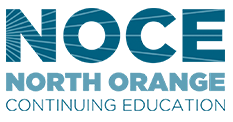
Financial aid (may be available)

Financial aid (may be available)

Financial aid (may be available)

Financial aid (may be available)
No cost info

$220 to start
$440 total

No cost info
$3,550 total
Financial aid (may be available)
OPTI Medical Systems supports the Online Quality Assurance Program (QAP) to add value to your OPTI CCA-TS2 analyzer. Online QAP facilitates the evaluation of quality control (QC) data with that of your peers for trends and shifts. Do not miss out on these valuable services that OPTI Medical provides OPTI analyzer users at no additional charge.
No cost info
The Graduate Certificate in Quality Assurance Compliance provides an in-depth knowledge of the global regulatory and compliance requirements for the development, marketing approval, and clinical utilization of biomedical products in today’s dynamic global healthcare environment.
No cost info
This program is designed for the chemist, bio-chemist or biologist in the pharmaceutical and biologic industry new to quality assurance and control, and is beneficial to senior year undergraduates and graduate students (using concurrent enrollment) interested in a career in QA/QC.
The program focuses on the quality requirements for the production and control of biologics and drugs, and the differences between quality control and quality assurance and their interaction with manufacturing. It highlights the importance of implementing and maintaining a quality system during the early stages of drug development, including the plethora of documents and controls necessary to make such a system effective. Guidelines and regulations from the FDA and the California State food and drug branch regulate the production of drug products. Quality Assurance (QA) monitors the manufacturer's compliance to these guidelines and regulations.
Instruction covers how to write, issue and control SOPs; manufacturing directions; and how to review and archive a batch history and other relevant documents. Emphasis is placed on conducting inspections and vendor audits for compliance to cGMPs to include contract manufacturers, bulk pharmaceutical chemical manufacturers and contract test laboratories. The program covers cGLPs and their applications to audits of facilities that provide toxicological services. Details on compiling, writing and archiving audit reports is provided.
No cost info
Quality assurance training helps applicants for understanding the basic concepts of information technology and software testing which help them excel as Quality Assurance (QA) specialists. The quality assurance course also covers physical products in determining defects in manufactured products and preventing them, pre-production, SDLC-Software Development Life Cycle, Production Environment vs Sandbox Environment, Mantis Bug Tracker, and many more. During the QA online training, you will learn how to decode the application of dynamic and static techniques, conduct walk-thoughts and audits, create a quality analysis, perform boundary value analysis, and test plan hands-on through this Quality assurance certification training.
No cost info
Mount St. Mary’s University is home to Maryland’s only certificate in quality assurance and regulatory science (QA/RS). The fully online program prepares you to lead your company through the efficient delivery of high-quality products within a competitive market.
No cost info
Are you located in Dayton and interested in pursuing a career in Quality Assurance? Look no further! In this blog post, we will explore the options available for Quality Assurance classes near you in Dayton. Whether you are just starting your career or looking to enhance your skills, there are a variety of training programs available to suit your needs. Let's dive in and discover the world of Quality Assurance!

Quality Assurance plays a crucial role in ensuring that products and services meet the highest standards of quality. It involves monitoring and evaluating processes to identify any deviations or defects and implementing corrective actions to prevent them. Quality Assurance professionals are in high demand across various industries, including manufacturing, healthcare, technology, and more.
Quality Assurance is a systematic process that ensures that products or services meet specified requirements. It involves monitoring and evaluating processes to identify any deviations or defects and implementing corrective actions to prevent them. Quality Assurance professionals play a vital role in maintaining and improving the quality of products and services.
To become a Quality Assurance professional, you typically need to have a high school diploma or equivalent. However, some employers may prefer candidates with a bachelor's degree in a related field, such as engineering or business. Additionally, having relevant certifications can enhance your job prospects and demonstrate your expertise in Quality Assurance.
When choosing a Quality Assurance class, it's essential to consider several factors to ensure that you receive the best training possible. Here are some things to look for:
During your Quality Assurance class, you can expect to learn a variety of topics and skills that are essential for a successful career in the field. Here are some things you can expect from the day-to-day class:
After completing your Quality Assurance class, you may have the option to pursue certification to further enhance your credentials and job prospects. Certification validates your knowledge and skills in Quality Assurance and demonstrates your commitment to professional development. The certification process typically involves the following steps:
Once you have completed your Quality Assurance training and obtained any relevant certifications, it's time to start your job search. Here are some tips to help you find a related job in Quality Assurance:
Becoming a Quality Assurance professional opens the door to various career opportunities within the field. Once you have gained experience in Quality Assurance, you may consider taking additional classes to expand your skill set and advance your career. Here are some other classes you can consider:
Quality Assurance is a critical field that ensures products and services meet the highest standards of quality. By enrolling in Quality Assurance classes near you in Dayton, you can gain the necessary skills and knowledge to pursue a successful career in this field. Remember to research and choose a reputable training provider that offers comprehensive curriculum, experienced instructors, and hands-on training opportunities. With the right training and certifications, you can open doors to exciting job opportunities in various industries. So, what are you waiting for? Start your journey towards a rewarding career in Quality Assurance today!
For other vocational classes or career options, visit Dreambound. Dreambound is the largest platform for students to find vocational training programs, such as allied health or industrial trades. Dreambound's mission is to provide all the information students need to find the perfect class.
For those looking to get started in this field, Dreambound's array of city-specific guides can be a valuable resource. And if you're in a different area or mulling over a move, don't miss out on our other helpful guides.
Exploring different career paths? Dreambound offers in-depth guides to assist you in making well-informed decisions. Explore some of these resources below:
Dreambound's platform allows prospective students to find the right educational program for them through searching, filtering, and connecting with our extensive selection of career & technical education partners.
Dreambound has over 70 programs across healthcare, technology, business, and industrial trades. This includes programs such as Medical Billing, Cybersecurity, and welding.
Some of our schools offer financial aid for those who qualify. Many others offer payment plans, where you can pay the cost of class over time.
Yes, Dreambound offers many online programs. On Dreambound's search, you can filter by online, in-person, and hybrid (part online, part in-person).
Dreambound is completely free for you to use! We are supported by schools and organizations who pay to advertise on our website, so we can offer all of our career resources for free.